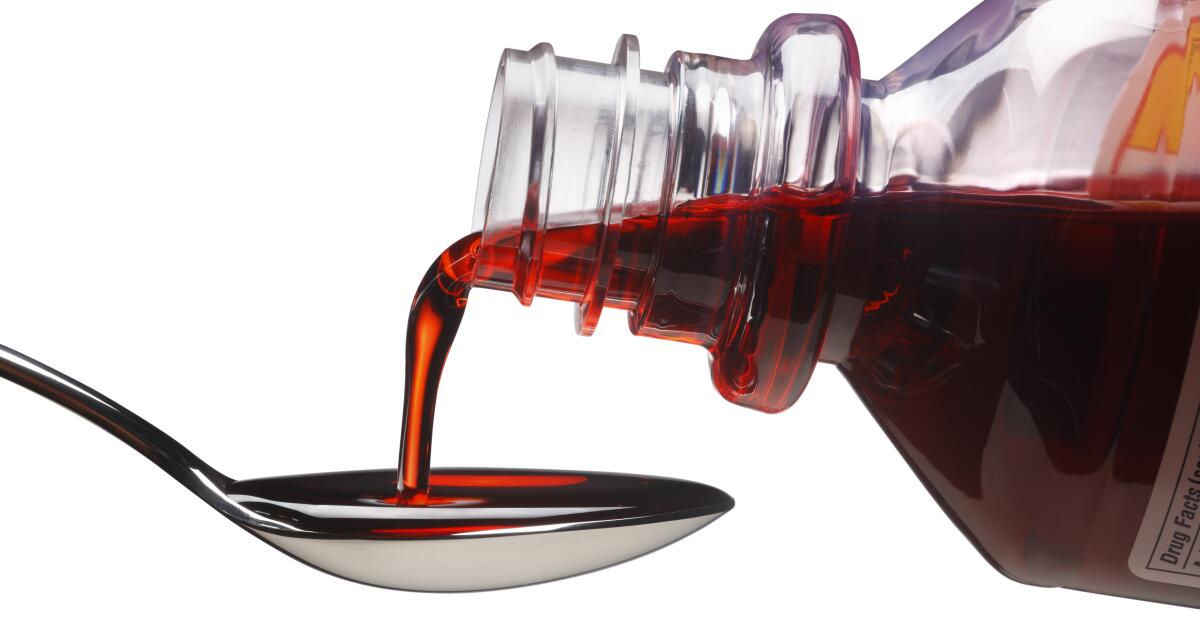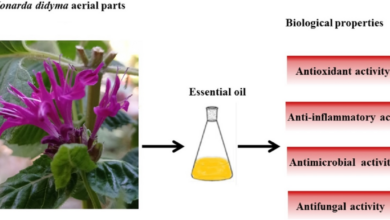
Should You Take Medicine for Cold and Cough?
Should you take medicine for cold and cough? That’s the million-dollar question, especially when battling a nasty sniffle or persistent cough. We’re all tempted to reach for that over-the-counter relief, but is it always necessary? This post dives deep into the world of cold and cough medications, exploring when they’re truly beneficial and when a gentler approach might be best.
We’ll uncover the different types of medications, their pros and cons, and explore natural remedies that can provide soothing relief.
From decongestants to expectorants and cough suppressants, we’ll break down the active ingredients, their mechanisms of action, and potential side effects. We’ll also consider the specific needs of different populations, like children, pregnant women, and the elderly, ensuring you make informed choices about your health. Get ready to navigate the world of cold and cough remedies with confidence!
Types of Cold and Cough Medicines: Should You Take Medicine For Cold And Cough
Navigating the world of over-the-counter (OTC) cold and cough medications can feel overwhelming. The sheer number of products available, each promising relief from sniffles, coughs, and congestion, can leave you wondering what’s actually in them and how they work. Understanding the different types of medications and their active ingredients is key to making informed choices for your own self-care.
This post will break down the common categories, helping you decipher the labels and choose the most appropriate medicine for your symptoms.
Decongestants
Decongestants work by narrowing blood vessels in the nasal passages, reducing swelling and congestion. This leads to easier breathing and a clearer head. They are effective for relieving stuffy noses associated with colds and allergies. There are two main types: oral decongestants and nasal sprays.
| Medication Type | Active Ingredient(s) | Mechanism of Action | Common Side Effects |
|---|---|---|---|
| Oral Decongestant | Pseudoephedrine, Phenylephrine | Stimulates alpha-adrenergic receptors, causing vasoconstriction in nasal blood vessels. | Increased blood pressure, nervousness, insomnia, difficulty urinating |
| Nasal Decongestant Spray | Oxymetazoline, Phenylephrine | Directly constricts blood vessels in the nasal passages. | Rebound congestion (worsening congestion after stopping use), nasal dryness, burning sensation. |
Expectorants
Expectorants help to loosen and thin mucus in the respiratory tract, making it easier to cough up. This can be beneficial for productive coughs, where you’re coughing up phlegm.
| Medication Type | Active Ingredient(s) | Mechanism of Action | Common Side Effects |
|---|---|---|---|
| Expectorant | Guaifenesin | Increases respiratory tract fluid secretion, making mucus less viscous and easier to expel. | Nausea, vomiting, headache, diarrhea (rare) |
Cough Suppressants (Antitussives)
Cough suppressants, also known as antitussives, work by reducing the urge to cough. They are most effective for dry, non-productive coughs that are irritating but not producing phlegm. These are best used when a cough is interfering with sleep or daily activities.
| Medication Type | Active Ingredient(s) | Mechanism of Action | Common Side Effects |
|---|---|---|---|
| Cough Suppressant | Dextromethorphan (DXM), Codeine (prescription only) | Depresses the cough center in the brain. | Drowsiness, dizziness, constipation (DXM); more significant side effects with codeine, including respiratory depression (prescription only). |
When to Consider Medication
So, you’ve got a cold or cough. The sniffles, the sore throat, the hacking – it’s miserable. But should you reach for the medicine cabinet? The decision isn’t always straightforward, and understanding when medication is beneficial is key to effective self-care. This post will help you navigate that decision-making process.Knowing when medication can truly help alleviate your symptoms, and when it’s best to let your body fight it off naturally, is crucial for managing colds and coughs effectively.
Over-the-counter medications can provide temporary relief, but they aren’t always necessary, and sometimes, they can even be counterproductive.
Situations Where Medication is Beneficial
Medication can offer significant relief when symptoms are severely impacting your daily life. For example, a debilitating cough that prevents sleep or a stuffy nose that makes breathing difficult warrants consideration. Over-the-counter medications can help manage these symptoms, allowing you to function more comfortably. Pain relievers, like acetaminophen or ibuprofen, can also help manage associated aches, pains, and fever.
However, always follow the recommended dosage and consult a doctor if you have concerns. For example, a persistent high fever (over 101°F or 38.3°C) despite using pain relievers necessitates professional medical attention.
Self-Treatment Versus Seeking Professional Medical Advice
Most common colds and coughs resolve within 7-10 days without medical intervention. Home remedies like rest, hydration, and over-the-counter medications can effectively manage symptoms during this time. However, certain situations require professional medical attention. These include symptoms lasting longer than two weeks, worsening symptoms (e.g., increasing difficulty breathing, high fever, severe chest pain), a cough producing green or yellow mucus (indicating a possible bacterial infection), or the presence of other concerning symptoms like a rash or severe headache.
A doctor can diagnose the underlying cause and provide appropriate treatment. For example, a child with a persistent cough and difficulty breathing requires immediate medical attention to rule out conditions like bronchiolitis or pneumonia. Similarly, an adult with a cough accompanied by significant chest pain needs evaluation to exclude serious conditions such as pneumonia or a blood clot.
Medication Effectiveness for Different Cough Types
The effectiveness of cough medication varies depending on the type of cough. Dry coughs, characterized by irritation and no mucus production, often respond well to cough suppressants. These medications work by reducing the cough reflex. Productive coughs, where mucus is produced, benefit more from expectorants. Expectorants help thin and loosen the mucus, making it easier to cough up.
It is important to choose the appropriate medication for your cough type. Using a cough suppressant for a productive cough could worsen the condition by preventing the body from clearing the mucus. Conversely, using an expectorant for a dry cough may not provide much relief. For example, a person with a dry, irritating cough at night may benefit from a cough suppressant to improve sleep, while someone with a productive cough with thick mucus may find an expectorant helpful in clearing their airways.
Potential Risks and Side Effects

Source: mygnp.com
While cold and cough medications can provide relief, it’s crucial to be aware of their potential risks and side effects. These medications aren’t without drawbacks, and understanding these potential issues can help you make informed decisions about their use. Ignoring potential side effects can lead to discomfort, worsening of symptoms, or even more serious health problems. Always read the label carefully and consult a doctor or pharmacist if you have any concerns.Many common cold and cough medications interact with other drugs, potentially leading to adverse effects.
This is particularly true for individuals taking prescription medications, but over-the-counter interactions are also possible. The combined effects of multiple medications can be unpredictable and potentially harmful. Therefore, it is vital to disclose all medications, including over-the-counter remedies, to your doctor or pharmacist to avoid dangerous drug interactions.
Side Effects by Medication Type
It’s important to understand that the side effects of cold and cough medications vary depending on the active ingredients. Some medications target specific symptoms, such as cough or congestion, while others offer a combination of effects. Knowing the potential side effects of each type can help you choose the most appropriate medication and be prepared for any potential adverse reactions.
- Decongestants (e.g., pseudoephedrine, phenylephrine): These medications can raise blood pressure and heart rate. Other potential side effects include nervousness, insomnia, and difficulty urinating. In individuals with pre-existing heart conditions or high blood pressure, these effects can be particularly problematic. For example, someone with hypertension taking a decongestant might experience a significant and dangerous spike in blood pressure.
- Expectorants (e.g., guaifenesin): While generally well-tolerated, expectorants can sometimes cause nausea, vomiting, or upset stomach. In rare cases, allergic reactions, such as skin rashes, can occur. A person with a sensitive stomach might find that guaifenesin exacerbates their existing digestive issues.
- Cough suppressants (e.g., dextromethorphan, codeine): Dextromethorphan can cause drowsiness, dizziness, and nausea. Codeine, a stronger opioid cough suppressant, carries a higher risk of side effects, including constipation, drowsiness, and respiratory depression. In some individuals, codeine can be habit-forming. For example, a patient taking codeine for a cough might experience significant drowsiness interfering with their daily activities.
- Antihistamines (e.g., diphenhydramine, cetirizine): These medications can cause drowsiness, dry mouth, blurred vision, and constipation. Some antihistamines are less sedating than others, but drowsiness remains a common side effect. A person driving after taking a sedating antihistamine could experience impaired reaction time and increase their risk of an accident.
Drug Interactions
Combining cold and cough medications with other drugs can lead to unforeseen consequences. For example, taking a decongestant with a medication that also raises blood pressure can significantly increase the risk of a hypertensive crisis. Similarly, combining certain cough suppressants with other sedatives can lead to excessive drowsiness and impaired cognitive function. Always consult a pharmacist or doctor before combining medications, especially if you are taking prescription drugs for conditions such as heart disease, high blood pressure, or diabetes.
Many medications, including some commonly used antidepressants and blood thinners, can interact negatively with over-the-counter cold and cough remedies.
Natural Remedies and Alternative Approaches
While pharmaceutical medications can effectively treat cold and cough symptoms, many people also turn to natural remedies to alleviate discomfort and support their body’s healing process. These approaches often focus on boosting the immune system and providing symptomatic relief without the potential side effects of drugs. The effectiveness of these methods varies depending on the individual and the severity of the illness, but they can be valuable additions to a comprehensive cold and cough management plan.
Natural remedies often work by addressing the underlying symptoms of a cold or cough. For instance, rest allows your body to dedicate its energy to fighting off the infection, while increased fluid intake helps thin mucus and prevent dehydration. Certain substances, like honey, have soothing properties that can alleviate a sore throat, and herbal teas can provide additional comfort and potentially offer immune-boosting benefits.
It’s important to remember that while these remedies can be helpful, they are not a replacement for medical advice, especially in severe cases.
Rest and Hydration
Adequate rest is crucial for recovery from a cold or cough. Your body needs energy to fight off the infection, and sleep allows your immune system to work optimally. Aim for 7-9 hours of quality sleep per night, and take extra rest during the day if you feel unwell. Coupled with rest, staying well-hydrated is equally vital.
Fluids help thin mucus, making it easier to cough up and clear from your respiratory system. Water is the best choice, but clear broths, herbal teas, and diluted fruit juices are also beneficial. Avoid sugary drinks, as they can worsen congestion.
Honey for Sore Throats
Honey has been used for centuries as a natural remedy for sore throats. Its viscous texture coats the throat, providing soothing relief. Studies have shown that honey can be as effective as some over-the-counter cough suppressants, particularly for children. A spoonful of honey before bed can help alleviate nighttime coughing and promote restful sleep. Choose raw, unprocessed honey for optimal benefits.
Herbal Teas and Other Remedies
Various herbal teas, such as chamomile, ginger, and licorice root, are often used to alleviate cold and cough symptoms. Chamomile tea has calming properties that can help with sleep, while ginger tea can help soothe nausea and reduce inflammation. Licorice root tea may help loosen mucus. It’s important to note that the scientific evidence supporting the effectiveness of these teas varies, and their use should be considered alongside other approaches.
Other remedies, such as gargling with salt water, can help soothe a sore throat.
Comparison of Natural Remedies and Pharmaceutical Medications
Natural remedies generally offer a gentler approach to cold and cough management, with fewer potential side effects than pharmaceutical medications. However, their effectiveness can be less predictable and often slower acting. Pharmaceutical medications, such as decongestants and cough suppressants, can provide faster and more targeted relief, but they carry the risk of side effects like drowsiness, dry mouth, and increased heart rate.
The choice between natural remedies and pharmaceutical medications often depends on the severity of symptoms, individual preferences, and potential health concerns.
Improving Immune Function
A strong immune system is the best defense against colds and coughs. Several lifestyle factors can significantly impact immune function. A balanced diet rich in fruits, vegetables, and whole grains provides essential vitamins and minerals that support immune health. Regular exercise strengthens the immune system and reduces stress, which can weaken it. Adequate sleep is also crucial, as it allows the body to repair and regenerate.
Stress management techniques like yoga, meditation, and spending time in nature can also contribute to a stronger immune system. Maintaining good hygiene practices, such as regular handwashing, can also help prevent the spread of respiratory infections.
Considerations for Specific Populations
Choosing the right cold and cough medication is crucial, but it becomes even more important when considering specific populations like children, pregnant or breastfeeding women, and the elderly. Their unique physiological characteristics and potential health conditions necessitate careful consideration of both the benefits and risks associated with over-the-counter (OTC) and prescription medications. Misuse can lead to serious complications, so understanding these considerations is paramount.
Cold and Cough Medications for Children
Children’s bodies process medications differently than adults. Their developing systems are more susceptible to adverse effects. Therefore, always consult a pediatrician before administering any cold or cough medication to a child, especially infants and toddlers. Many medications are not recommended for this age group due to the risk of serious side effects. Always follow the dosage instructions precisely, using the correct measuring device, and never exceed the recommended dose.
Avoid using combination products unless specifically directed by a physician, as this can lead to accidental overdoses of certain ingredients. For example, a child may receive an excessive dose of acetaminophen if they are also given a separate acetaminophen product.
Cold and Cough Medications During Pregnancy and Breastfeeding
Pregnancy and breastfeeding present unique challenges when it comes to medication use. Many medications can cross the placenta or enter breast milk, potentially affecting the developing fetus or nursing infant. During pregnancy, the benefits of medication must significantly outweigh any potential risks to the baby. Similarly, during breastfeeding, the mother should choose medications with the lowest possible risk of transfer to the infant through breast milk.
Consult your doctor or a qualified healthcare professional to discuss safe alternatives and the potential risks and benefits of any medication you’re considering. For example, some decongestants may be deemed safe while others are avoided completely. Always prioritize safe and evidence-based approaches.
Cold and Cough Medications for the Elderly
Older adults often have multiple health conditions and are taking several medications simultaneously. This increases the risk of drug interactions and adverse effects. Their bodies also process medications more slowly, increasing the risk of accumulation and toxicity. Therefore, it is essential to carefully review all medications with their physician or pharmacist before starting any new cold or cough remedy.
The elderly are also more susceptible to side effects such as drowsiness, dizziness, and constipation, which can increase the risk of falls. Lower doses may be necessary, and careful monitoring for side effects is crucial. For instance, an elderly person with a history of heart problems might experience heightened adverse effects from certain decongestants.
Decision-Making Flowchart for Cold and Cough Medication Selection
The following flowchart illustrates a simplified decision-making process for selecting appropriate cold and cough medication based on age and health conditions:[A textual representation of a flowchart follows. Note: A visual flowchart would be ideal, but as requested, I am providing a textual description.] Start:* Age: < 2 years old? Yes --> Consult Pediatrician. No –> Proceed.
Age > 65 years old? Yes –> Consult Physician, consider pre-existing conditions and medications. No –> Proceed.
- Pregnant or Breastfeeding? Yes –> Consult Physician. No –> Proceed.
- Specific Health Conditions (e.g., heart disease, liver disease, asthma)? Yes –> Consult Physician. No –> Proceed.
- Select OTC medication based on symptoms (following package instructions carefully).
- Monitor for side effects.
- If symptoms worsen or side effects occur, consult a healthcare professional.
- End
Duration of Treatment and When to Seek Medical Attention

Source: healthgrades.com
Knowing when to stop taking cold and cough medication and when to seek professional medical help is crucial for effective treatment and preventing complications. Over-the-counter medications typically provide relief for symptoms, but their use shouldn’t be indefinite. Understanding your body’s response and recognizing warning signs is key to navigating your illness effectively.Most cold and cough medications are designed for short-term symptom relief, usually lasting no more than 7-10 days.
If your symptoms haven’t improved or have worsened after this period, it’s time to consult a doctor. Continuing medication beyond this timeframe without medical advice might mask a more serious underlying condition or lead to adverse effects from prolonged medication use. Furthermore, some medications, particularly those containing decongestants, can lead to rebound congestion if used for too long.
Discontinuing Medication and Consulting a Doctor
Discontinue medication once your symptoms have significantly improved and you feel your body is recovering. This usually means a reduction in coughing, sneezing, nasal congestion, and fever. However, if any symptoms persist or worsen, even after a week of medication, or if new symptoms develop, it’s essential to seek medical attention. This could indicate a secondary infection (such as bronchitis or pneumonia), an allergic reaction, or a more serious underlying health problem.
For example, a persistent high fever, difficulty breathing, or worsening chest pain warrants immediate medical attention.
Signs and Symptoms Requiring Immediate Medical Attention
Several signs indicate the need for immediate medical care. These include:
- High fever (over 103°F or 39.4°C) that persists despite medication.
- Difficulty breathing or shortness of breath.
- Severe chest pain or pressure.
- Wheezing or persistent cough producing thick, discolored mucus.
- Severe headache or stiff neck.
- Confusion or disorientation.
- Symptoms that worsen after initial improvement.
- Signs of dehydration, such as decreased urination and dry mouth.
These symptoms could suggest serious complications like pneumonia, bronchitis, or other respiratory infections requiring prompt medical intervention. Delaying treatment can lead to more severe illness and prolonged recovery.
Communicating with a Healthcare Provider, Should you take medicine for cold and cough
Effective communication with your doctor is crucial for accurate diagnosis and appropriate treatment. Here’s a step-by-step guide:
- Prepare a list of your symptoms: Note the duration, severity, and any patterns you’ve observed. For example, “Persistent cough for five days, worse at night, producing clear mucus.” Include any accompanying symptoms like fever, headache, or body aches.
- Document your medications: List all medications you’re taking, including over-the-counter remedies, supplements, and prescription drugs. Note the dosage and frequency.
- Describe your medical history: Mention any pre-existing conditions, allergies, or past illnesses that might be relevant.
- Be clear and concise: Use simple language to describe your symptoms and concerns. Avoid medical jargon.
- Ask questions: Don’t hesitate to ask your doctor about your symptoms, treatment options, and potential risks.
- Follow your doctor’s instructions: Adhere to the prescribed treatment plan and follow-up appointments as scheduled.
By following these steps, you can ensure that your doctor has the necessary information to provide the best possible care. Remember, seeking medical advice promptly can help prevent minor illnesses from developing into more serious health issues.
Illustrative Examples of Medication Regimens
Choosing the right cold and cough medication and following the dosage instructions precisely is crucial for effective treatment and minimizing potential side effects. Improper use can lead to complications, highlighting the importance of understanding specific medication regimens. The examples below illustrate appropriate approaches for different symptom presentations. Remember, always consult a doctor or pharmacist before starting any new medication, especially if you have pre-existing health conditions or are taking other medications.
Severe Congestion Regimen
Severe nasal congestion can significantly impact breathing and sleep quality. A common approach involves a combination of a decongestant and an expectorant. For example, a regimen might include pseudoephedrine (a decongestant) to reduce swelling in the nasal passages, taken every 4-6 hours as directed on the label, and guaifenesin (an expectorant) to help thin and loosen mucus, taken every 4-6 hours as well.
It’s vital to follow the recommended dosage precisely; exceeding the recommended dose may lead to increased side effects like nervousness, insomnia, or increased blood pressure with pseudoephedrine. A hypothetical scenario: If someone were to double the dose of pseudoephedrine, they might experience severe anxiety, rapid heart rate, and even a significant rise in blood pressure, potentially leading to a medical emergency.
Always adhere to the prescribed dosage and duration of treatment.
Persistent Cough Regimen
A persistent cough, lasting more than a week or accompanied by other symptoms like fever or shortness of breath, requires careful consideration. A doctor might recommend a combination of a cough suppressant and an expectorant, depending on the type of cough (dry or productive). For a dry, non-productive cough, dextromethorphan, a cough suppressant, might be prescribed to reduce the frequency of coughing fits.
For a productive cough (with mucus), guaifenesin, an expectorant, could be recommended to help clear the airways. Dosage should be strictly followed; exceeding the recommended amount of dextromethorphan could lead to drowsiness or dizziness, potentially impacting daily activities and safety. For example, exceeding the recommended dose of dextromethorphan could lead to a situation where someone driving becomes drowsy and causes an accident.
A balanced approach, adhering to the prescribed regimen, is key to managing the cough effectively and safely.
Combination Medications
Many over-the-counter cold and flu medications combine multiple active ingredients to address various symptoms simultaneously. These combination products often contain decongestants, pain relievers (like acetaminophen or ibuprofen), and cough suppressants or expectorants. It is crucial to carefully read the label and understand the ingredients and their potential interactions with other medications you may be taking. For example, combining a combination cold medicine containing acetaminophen with another medication also containing acetaminophen could lead to an accidental overdose of acetaminophen, potentially causing liver damage.
Always check the labels of all medications before combining them and consult a pharmacist if you have any questions or concerns.
Final Review
So, should you take medicine for a cold or cough? The answer, as with most things health-related, isn’t a simple yes or no. It depends on the severity of your symptoms, your overall health, and your personal preferences. Understanding the different types of medications available, their potential side effects, and the effectiveness of natural remedies empowers you to make the best decision for your body.
Remember, listening to your body and seeking professional medical advice when needed is always the wisest course of action. Stay healthy, and happy sniffling (or not!)
Quick FAQs
Can I take cold medicine with other medications?
Always check with your doctor or pharmacist before combining cold medicine with other prescription or over-the-counter drugs to avoid potential interactions.
How long should I take cold medicine?
Follow the dosage instructions on the label carefully. If symptoms persist beyond a week, consult a doctor.
Are there any cold remedies safe for pregnant women?
Consult your doctor before taking any medication during pregnancy. Many remedies are not recommended.
What’s the difference between a dry cough and a productive cough?
A dry cough is unproductive, while a productive cough brings up mucus. Different medications are effective for each type.
My child has a cough. What should I do?
Consult your pediatrician before giving your child any medication. They can advise on safe and effective treatment options.





